Over the last few months, our society has focused a great deal on racism, especially with respect to African Americans. Although our present issue is complex and polarizing, what the Bible teaches on this subject is straightforward and clear. Let us begin with creation itself.
Genesis 1:12, 20, 25
12 The earth brought forth vegetation, plants yielding seed according to their own kinds, and trees bearing fruit in which is their seed, each according to its kind. And God saw that it was good… 20 And God said, “Let the waters swarm with swarms of living creatures, and let birds fly above the earth across the expanse of the heavens.”… 25 And God made the beasts of the earth according to their kinds and the livestock according to their kinds, and everything that creeps on the ground according to its kind. And God saw that it was good.
When we look at the first chapter of Genesis, we see various areas of creation: the fish of the sea, the birds of the air, the animals on the land. Within each, we find an astounding array of diversity. Take trees for example. The range of colors, types, and sizes boggles the mind from little bonsai trees to towering redwoods, from apple trees to avocado trees, from oak to teakwood, and much more. Or we can consider dogs from the tiny shih tzu to Great Danes, from fierce bulldogs to timid Yorkshire terriers, from intelligent breeds like Labrador retrievers to the less brainy beagle and everything in between. Apparently God likes diversity. He could have easily made one kind of tree, dog, or human, but he didn’t.
All people are members of the same human race, descended from the same two parents who were made in the image of God (Genesis 1:27). Even so, within humanity we observe a magnificent range of diversity. From a biblical creation perspective, we are left to conclude that God wanted variety right from the start. In other words, variations in skin color, height, hair color, and countless other attributes are baked into God’s original intention for creation. It is part of God’s goodness in the world. Additionally, God plans to have the widest possible range of diversity in the age to come when He establishes the Kingdom as recorded in the last book of the Bible.
Revelation 5:9-10
9 And they sang a new song, saying, “Worthy are you to take the scroll and to open its seals, for you were slain, and by your blood you ransomed people for God from every tribe and language and people and nation, 10 and you have made them a kingdom and priests to our God, and they shall reign on the earth.”
This is God’s end goal. He wants to have people from “every tribe and language and people and nation” to rule on the earth. Eternal life is not just for the descendants of Abraham or those of a certain nationality or language. No, God opens the door to all people! We can learn a lot from these two parts of the Bible. From Genesis, we learn what God originally wanted. From Revelation, we understand what He will ultimately bring to pass in the end. Within these book ends, we find a winding narrative of fall and redemption as God works with different individuals and groups to bring about His purposes.
Furthermore, because of what Christ has accomplished, we Christians have a unique perspective on categories that divided us by age, ethnicity, and gender. Here are two texts that speak to the exciting nature of the church from Pentecost forward:
Acts 2:16-21
16 But this is what was uttered through the prophet Joel: 17 “‘And in the last days it shall be, God declares, that I will pour out my Spirit on all flesh, and your sons and your daughters shall prophesy, and your young men shall see visions, and your old men shall dream dreams; 18 even on my male servants and female servants in those days I will pour out my spirit, and they shall prophesy…21 And it shall come to pass that everyone who calls upon the name of the Lord shall be saved.’
Galatians 3:27-29
27 For as many of you as were baptized into Christ have put on Christ. 28 There is neither Jew nor Greek, there is neither slave nor free, there is no male and female, for you are all one in Christ Jesus. 29 And if you are Christ’s, then you are Abraham’s offspring, heirs according to promise.
Christ is the great unifier who brings together people from different backgrounds, places, and cultures. In fact, early on Christians expanded beyond the Jewish world to include Samaritans, Italians, and Ethiopians. (See Acts 8 and 10.) However, the greatest challenge was how to build community across ethnic lines. This first happened in the bustling metropolis of Antioch in Syria. Here is how it started.
Acts 11:19-21
19 Now those who were scattered because of the persecution that arose over Stephen traveled as far as Phoenicia and Cyprus and Antioch, speaking the word to no one except Jews. 20 But there were some of them, men of Cyprus and Cyrene, who on coming to Antioch spoke to the Hellenists also, preaching the Lord Jesus. 21 And the hand of the Lord was with them, and a great number who believed turned to the Lord.
Acts 13:1
Now there were in the church at Antioch prophets and teachers, Barnabas, Simeon who was called Niger, Lucius of Cyrene, Manaen a lifelong friend of Herod the tetrarch, and Saul.
The Antioch church was a first-century community of diverse nationalities, cultures, and races. In addition to Barnabas (a Levite) and Paul (a Benjamite), we have people from Cyprus (a Greek island) and Cyrene (a city in north Africa). Simeon’s nickname “Niger” doubtless referred to his dark complexion. (“Niger” is the Latin word for black.) Additionally, they had Manaen, a well-connected nobleman of Jewish descent. Many more were part of this cutting-edge church, both from Jewish and Greek backgrounds.
The biggest issue they faced was table fellowship, especially between Jews and non-Jews due to dietary restrictions. At times, this resulted in sharp disagreements. Paul recounts one such incident when he confronted Peter.
Galatians 2:11-14
11 But when Cephas came to Antioch, I opposed him to his face, because he stood condemned. 12 For before certain men came from James, he was eating with the Gentiles; but when they came he drew back and separated himself, fearing the circumcision party. 13 And the rest of the Jews acted hypocritically along with him, so that even Barnabas was led astray by their hypocrisy. 14 But when I saw that their conduct was not in step with the truth of the gospel, I said to Cephas before them all, “If you, though a Jew, live like a Gentile and not like a Jew, how can you force the Gentiles to live like Jews?”
This brief episode is an important window into the challenges that face communities comprised of people from differing backgrounds. The Jewish law had forbidden eating certain unclean foods. (See Leviticus 11.) However, because of the Christ event, these old ways of relating to God were abolished so that He may create one new humanity (Ephesians 2:14-16). The old identity markers were no longer what mattered. Now, faith in Christ and his gospel message trumped everything else. If someone belongs to Christ, then he or she is part of the family of God, regardless of their age, sex, race, status, wealth, or anything else.
We have a bold and exciting history of embracing diversity in community. In fact, it was “in Antioch the disciples were first called Christians” (Acts 11:26). To think that Christianity got so offtrack that we succumbed to the egregious sins of racism, kidnapping, and slavery is hard to imagine, considering our origins. Even so, that’s precisely what happened, especially in Europe and the Americas. What’s worse is that this was no mere detour, but a prolonged, institutionalized reality for centuries. Reading first-hand accounts by people like Frederick Douglas, Solomon Northrup, and Sojourner Truth, we encounter horrifying descriptions of how white Christians dehumanized and abused others. To make matters worse, a great number of the enslaved likewise practiced Christianity, which means that Christians were oppressing Christians!
How did we go from the first-century form of Christians living in community and supporting each other across racial and ethnic lines to some Christians owning others and whipping them mercilessly? I don’t pretend to understand how this happened, but one lesson I take from this is that I must be careful about self-deception. It’s possible for me to think “I’m righteous; I’m innocent; I’m justified in my actions”—and yet, be horribly deceived from reality. We must be vigilant to take seriously criticisms when they come and check our thinking and living against Scripture to see if it lines up. If we are biblical Christians, then we cannot also tolerate racism within our own hearts.
When I look at Scripture, I see that Africa was instrumental in the life and death of my Lord. When his own people wanted to murder him, Africa provided a refuge for Jesus when he was a young child. But, we don’t find Africa playing a role only at the beginning of Christ’s life, but also at the end. When he was unable to bear his cross, it was an African—Simon of Cyrene—who carried it for him up to Golgotha. Later on, Jesus sent an angel to direct Philip to travel on the road that goes to Gaza so that he would be able to bring the message of salvation to one man—a court official of Ethiopia. Philip dutifully preached salvation to him and baptized him, welcoming him into the family. Later on, Ethiopia became the second nation in human history to declare Christianity its official religion in a.d. 330, just after Armenia in a.d. 301, but before the Roman Empire in a.d. 380. What do I take from all of this? God loves and wants all people from every ethnicity, culture, and race to be a part of His family. If I am a child of God, then I too should love and want all people to be a part of God’s family—my family. Racism can’t survive within that mentality.
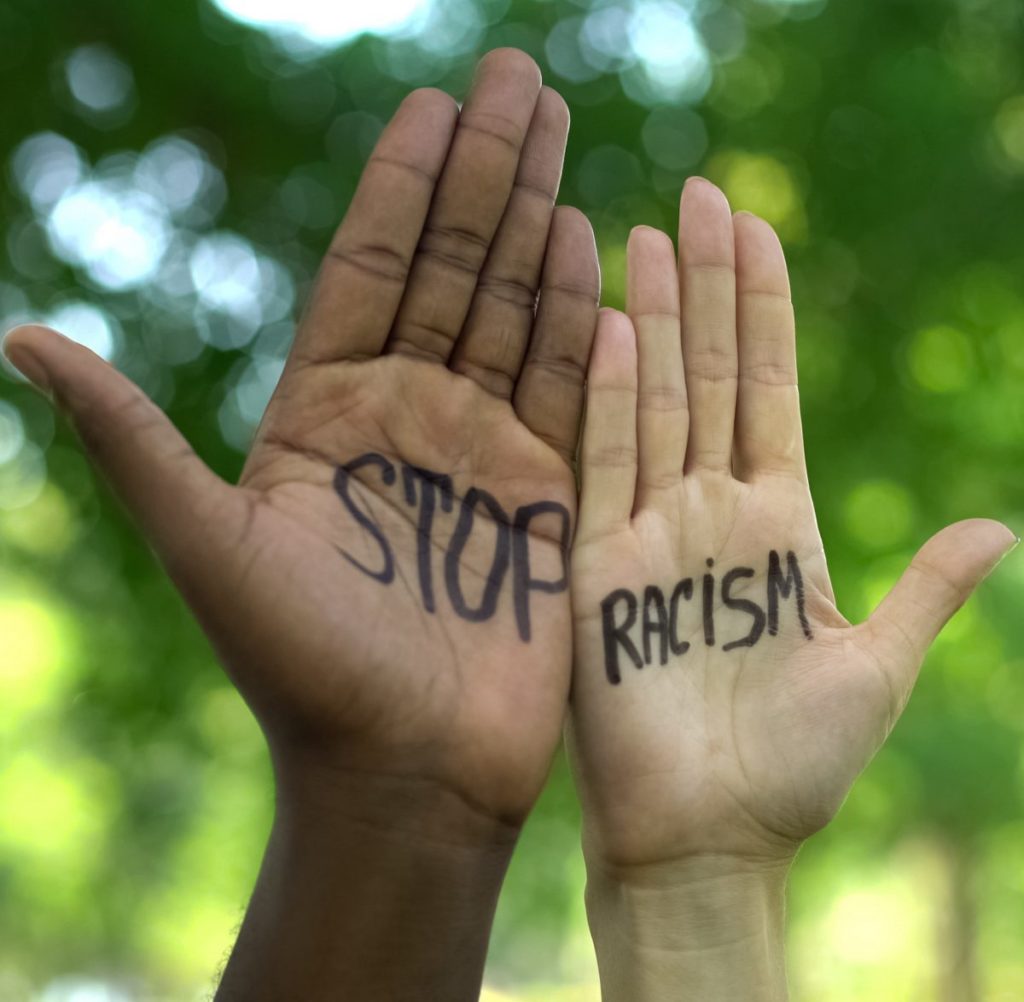


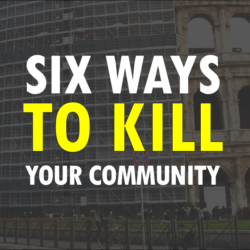
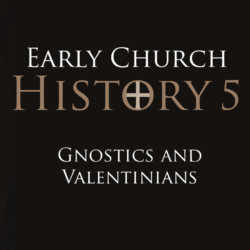

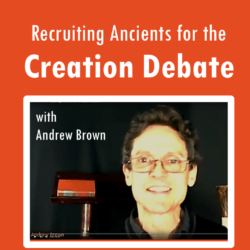

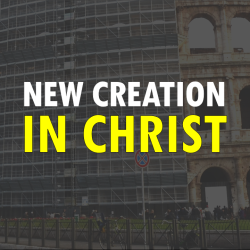
Your effort is appreciated. I won’t be voting for either candidate, but open racism, which had laid latent, has Violently manifested. Unfortunately many will blow with the prevailing social wind. So we need to adjust the sails accordingly.
Christianity can be used as a prop to uphold any ideology. Preaching the sermons on the plain and mountain, and living those beliefs, is a choice.
The NT shows little to no evidence that the early churches were to be “social justice warriors” fighting against racism, etc.
As a matter of fact, a good biblical argument can be made that they had to accept a slavery society, according to Paul’s letters.
Great article! As Christians there should be no room for racism in our thinking. While the Old Testament could possibly be read in a way that exalts certain peoples over others, the New Testament is quite clearly opposed to that idea.
I’ve often thought that Christians should do more to overcome racism and be helping to build greater unity among different people groups. Sadly most church services have very little diversity and many would almost appear to be segregated because of that. Dr. King once said that church was the most segregated institution. Sadly decades later that still remains largely true.
I’m not sure I have the answers, but I am interested in helping bridge the gap that there appears to be within Christianity in regards to this issue.